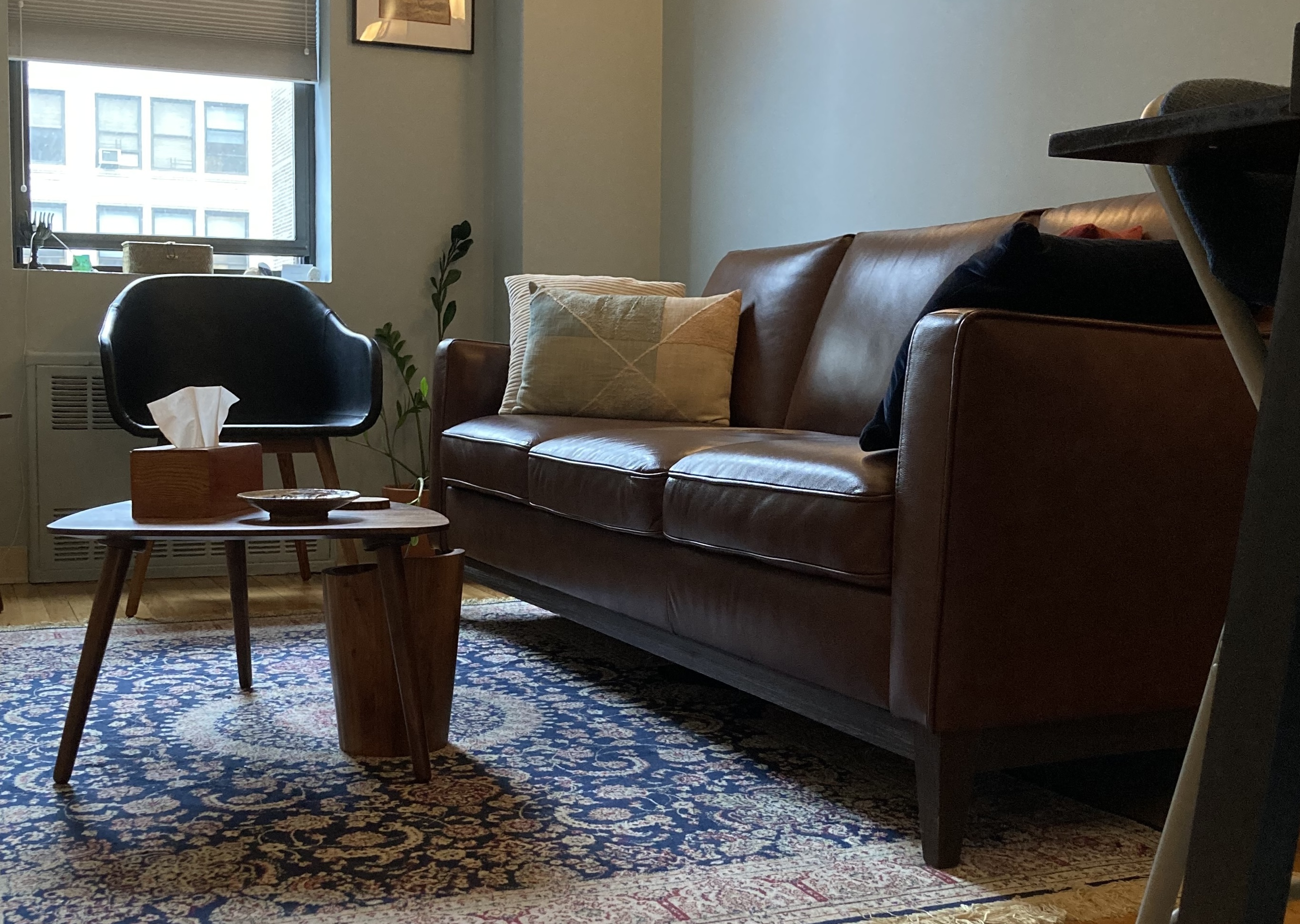I work with individuals, couples, and families who are trying to cope with anxiety, relationship challenges, work issues, their own or a loved one’s behavioral or chemical addiction, or major life decisions. I also speak with people who aren’t currently enduring any of those challenges but who want to speak on a regular basis to address small issues before they become big ones.
I have an analytical background – on Wall St. and in scientific (addiction) research – and my approach to therapy is most definitely informed by those pursuits. I am dedicated to getting to the heart of the problem using both reason and instinct. My responsibility is to work with you to shine a light on the events, circumstances, and choices that have compromised your ability to embrace your life, your work, or your relationships. Once clarified, their ability to negatively affect your life is diminished, making it far easier to live in accordance with your values and aspirations. And to live a well-deliberated, meaningful life.
If you have never been to therapy, rest assured: It’s not awful. It’s not pressured. It is an opportunity, not an obligation, to say things you’ve always wanted to say without fear of judgment; to put words to feelings without fear of reprisal; to work through difficult conversations with someone who is trained to listen carefully and who will provide support, objectivity, and guidance. If you have some experience in therapy, then you have some idea of what it’s like. But if your past experiences in therapy have not been positive, I ask you to have faith that a new experience can be better. It just requires the right chemistry.
I am easy to reach and easy to talk to, so please don’t hesitate to contact me at (914) 320-0350 or harlan@harlanmatusow.com. My offices are located at 928 Broadway (at 21st Street) in the Flatiron area of NYC and 7 Pondfield Road in Bronxville, NY.
-Harlan
Note: I am an out-of-network provider.





